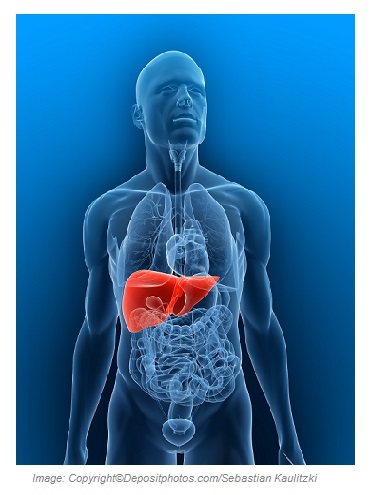Hepatitis is inflammation of the liver caused by viruses, alcohol, drugs, and genetic
 and metabolic disorders. It is characterized by mild fever, malaise, loss of appetite, nausea, vomiting, headache, abdominal pain, and changes in the colors of urine and stool (dark urine and white stool). Hepatitis is commonly classified as acute and chronic.
and metabolic disorders. It is characterized by mild fever, malaise, loss of appetite, nausea, vomiting, headache, abdominal pain, and changes in the colors of urine and stool (dark urine and white stool). Hepatitis is commonly classified as acute and chronic.
Viruses and alcohol are the most common causes of hepatitis, and viral hepatitis has been classified into hepatitis A, hepatitis B, hepatitis C, hepatitis D, and hepatitis E.
Potential causative agents:
- Viruses (hepatitis A, B, C, D, and E).
- Alcohol.
- Drugs and toxins:
- Aspirin.
- Acetaminophen.
- Oxacillin.
- Halothane.
- Isoniazid.
- Phenytoin.
- Methyldopa.
- Carbamazepine.
- Valproic acid.
- Rifampin.
- Minocycline.
- Trovafloxacin.
- Amiodarone.
- Nitrofurantoin.
- Flutamide.
- Calcium channel blockers.
- Herbs:
- Chaparral.
- Germander.
- Comfrey.
- Mistletoe
- Pennyroyal oil.
- Toxic mushrooms.
- Genetic and metabolic disorders:
- Wilson disease.
- Alpha-antitrypsin deficiency.
- Autoimmune hepatitis.
The following people are at higher risk for developing hepatitis and they should be screened for:
- Screening indications for hepatitis B:
- Sexual contacts with persons with hepatitis B.
- Drug abusers.
- People with multiple sexual partners.
- People with history of sexually transmitted diseases.
- Homosexual men.
- Inmates of correctional facilities.
- Pregnant women.
- HIV positive people.
- People on hemodialysis.
- People who take immunosuppressive therapy.
- Screening indications for hepatitis C:
- Drug abusers.
- HIV positive people.
- Patients on hemodialysis.
- Recipients of contaminated transfusion.
- Sexual partners of people with hepatitis C.
- Children born to mothers with hepatitis C.
- Recipients of contaminated blood clotting factors.
Nutritional Supports:
Restricted Foods:
- Saturated, hydrogenated, and Trans – fats.
- Sugars and sweets.
- Fried foods.
- Processed foods.
- Margarine.
- Lard.
- Alcohol.
- High protein diets.
- Egg yolks.
- Pork.
- Beef liver.
- Artificial sweeteners.
- Vegetable shortenings (shortening is a fat that is solid at room temperature and is used in cooking, baking, grilling and making pastries).
- Foods additives, preservatives, and colorings
Recommended Foods:
- Drink plenty of water: at least 2 liters a day.
- Whole grains.
- Foods high in fiber: lentils, beans, avocado, oats, and artichoke.
- Foods high in omega-3: fish, flaxseeds, chia, and hemp seeds.
- Fruits and vegetables high in flavonoids: berries, red grapes, grapefruit, pomegranate, sea buckthorn, persimmon, kiwi, beets, basil, garlic, parsley, radish, radicchio, rhubarb and parsnips.
- Garlic.
- Onion.
- Vegetables from brassica family: broccoli, cauliflower, kale, cabbage, and Brussels sprouts.
- Spices: cinnamon, turmeric, oregano, basil, cayenne, sumac, and rosemary.
- Ginger.
- Vegetables with liver detoxifying activities: beets, artichoke, carrots, and dandelion greens.
- Chlorella and spirulina.
- Green tea.
- Mushrooms: reishi, maitake, and shiitake.
Recommended Supplements:
- French Maritime Pine Bark Extract: 200 – 300 mg a day. It is a potent antioxidant that reduces inflammation and improves blood circulation.
- Green Tea Extract (containing catechins and polyphenols): 500 – 1000 mg a day. Catechins and polyphenol are potent flavonoids that useful in acute and chronic hepatitis.
- Grape Seed Extract: 100 – 200 mg a day.
- Curcumin: 1000 – 1500 mg a day. It is a powerful antioxidant that detoxifies the liver.
- Milk Thistle Extract (containing 80% silymarin): 600 – 900 mg a day. It has a liver detoxifying effect.
- Betaine Citrate or Aspartate: 3000 – 6000 mg a day. It helps especially with alcohol-induced fatty liver. Betaine hydrochloride is mostly used in people with poor digestion and low gastric acid secretion.
- Vitamin C: 2000 – 3000 mg a day.
- Vitamin B1 (Thiamine): 100 – 200 mg a day.
- L – Carnosine: 500 – 1000 mg a day. It may help people with hepatitis C.
- Dandelion Extract: Dandelion root: as a dried form, 5 – 15 grams a day, or as a tincture 10 – 30 ml day. It contains taraxacin that improves digestion, increases bile production, and has a laxative effect.
- Licorice: 1000 – 2000 mg a day, or 1 ml of the tincture 3 – 4 times a day. Licorice has anti-inflammatory and antiviral activities.
- Schizandra Extract: 1000 – 1500 mg a day. It contains Schizandra lignans that have protective effects on the liver and may help people with chronic viral hepatitis.
- Bupleurum: as a capsule, 1000 – 3000 mg a day. This herb contains saikosaponnins that help people with chronic active hepatitis.
- Garlic: 600 – 900 mg a day. The active ingredients in garlic are allicin, ajoene, alliin, flavonoids and phenolic compounds.
- Digestive Enzymes: A full spectrum product.
- Probiotics: a product that provides 5 to 10 billion organisms per serving.
- Vitamin B – Complex: A high potency product.
Miscellaneous Suggestions:
- Liver detoxification.
- Colon cleansing.

